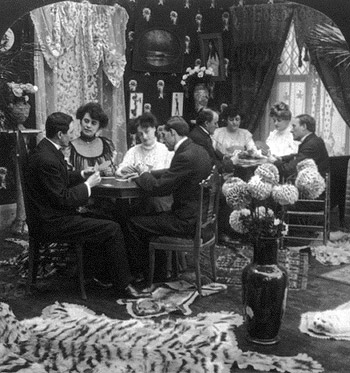Deerfield's Progressive Impulse
Well-made Baskets for the dutiful consumer
The American Home
The 'machine age' had a powerful effect on the American home. In the second half of the 19th century, vast amounts and varieties of affordable factory-made domestic goods were produced for and consumed by a growing American middle class. By the early 20th century, Arts and Crafts proponents were especially worried about what they often expressed as an important byproduct of the changes to how 'things' were produced and consumed in America--a decline in the quality of objects meant for the home. As one writer put it, "from the hands of the craftsman hurry and commercialism have snatched his loved materials and tossed them to the insatiable machines, whence they issue an eloquent witness alike to the triumphs and shortcomings of a mechanical civilization." 1 The author of "The Excuses for Ugliness" asked, "should not we be better off, if we made bonfires of three-quarters of the things in our houses? Is not one engraving, prized, studied, and given the place of honor on the wall, worth a drawer full of photographs? The more knick-knacks we acquire, the more we want, and as we get a taste for cheap, machine-made articles, we cease to produce artistic hand made ones."2
- Carman Robert, "Are We Becoming 'Civilized' too Rapidly," The Craftsman Vol. XVII January 1910 No. 4, 358.
- Ernest Crosby, "The excuses for Ugliness," The Craftsman, August 1904, 311.
 In Their Words
In Their Words

© Collection of the Library of Congress
"Playing Cards at the Parlor Table"
Stereograph, c. 1906






















